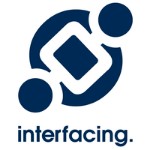When to use per our conversation? Use ‘per our conversation’ for clarity and to reference agreements or plans made in prior discussions.
Per our conversation is a phrase that is commonly used in professional settings to refer to a previous discussion or agreement. It is often used in emails or during meetings to indicate that the current topic is related to a previous conversation. The phrase is a polite and professional way of acknowledging that the speaker has been paying attention and is aware of the context of the current discussion.

Email communication is one of the most common places where the phrase “per our conversation” is used. In an email, it can be used to refer to a previous discussion or agreement and provide context for the current message. By using this phrase, the sender is able to establish a connection between the current message and a previous conversation, which can help to avoid confusion and miscommunication.
Conversational agreements are another area where the phrase “per our conversation” can be useful. When two or more people have a discussion, they may come to an agreement on a particular topic. By using this phrase, they can refer back to the agreement and ensure that everyone is on the same page. This can be particularly helpful when there are multiple people involved in a project or decision-making process.
Key Takeaways
- “Per our conversation” is a professional way of referring to a previous discussion or agreement.
- It is commonly used in email communication and during meetings.
- By using this phrase, individuals can establish a connection between the current message and a previous conversation, which can help to avoid confusion and miscommunication.
Email Communication
Understanding Formal Language
In today’s digital age, email communication has become an integral part of daily life. However, it is important to understand the nuances of formal language when communicating through email. Formal language is a way of communicating that is used in professional settings, and it is important to use it to convey a professional image.
When sending an email, it is important to use proper grammar and punctuation. This will ensure that the message is clear and easy to understand. Additionally, it is important to avoid using slang, abbreviations, or emoticons, as these can be seen as unprofessional.
Effective Email Correspondence
Effective email correspondence involves more than just using formal language. It is important to communicate information clearly and concisely. This can be achieved by using bullet points or numbered lists to break up large blocks of text.
When communicating through email, it is also important to be polite and respectful. This includes using appropriate salutations and sign-offs, as well as avoiding confrontational language. It is important to remember that email communication lacks the context of face-to-face interaction, so it is important to be extra careful with the words used.
To ensure effective communication, it is also important to clarify information, update recipients, and recap important points. This will help to avoid misunderstandings and ensure that everyone is on the same page. Using the term “per our conversation” can help with this.
For more information on effective email communication, check out this resource, which provides tips and best practices for communicating effectively through email.
Conversational Agreements
When engaging in a conversation, it is important to establish conversational agreements to ensure that both parties are on the same page. These agreements help to clarify the details of the conversation and ensure mutual understanding.
Clarifying Agreed Points
One important aspect of conversational agreements is clarifying agreed points. This involves identifying and confirming the details of the conversation that both parties have agreed upon. This can be done through the use of lists, tables, or other formatting tools to clearly outline the agreed points.
It is also important to follow up on agreed points after the conversation to ensure that both parties are still on the same page. This can be done through a quick email or phone call to confirm that the agreed points are still valid and by saying “per our conversation”.
Ensuring Mutual Understanding
Another important aspect of conversational agreements is ensuring mutual understanding. This involves making sure that both parties have a clear understanding of the details of the conversation and any obligations or agreements that were made.
To ensure mutual understanding, it is important to ask questions and clarify any misunderstandings that may arise during the conversation. This can be done through the use of expressions such as “just to clarify” or “can you explain that in more detail?”.
It is also important to follow up after the conversation to ensure that both parties have a clear understanding of any obligations or agreements that were made. This can be done through a quick email or phone call to confirm that both parties are still on the same page. Using the term “per our conversation”
Overall, establishing conversational agreements is crucial for maintaining positive relationships and ensuring that tasks and deadlines are met. By clarifying agreed points and ensuring mutual understanding, both parties can work together towards a common goal. For more information on conversational agreements, check out this resource on active listening and effective communication.
Post-Meeting Follow-Ups

After a meeting, it’s important to follow up to ensure that everyone is on the same page and that tasks are completed on time. Here are some ways to effectively follow up after a meeting.
Summarizing Discussed Topics
One of the most important things to do after a meeting is to summarize the discussed topics. This can be done through meeting minutes or notes. Meeting minutes are a formal record of the meeting, while notes are more informal and can be taken by anyone in attendance.
It’s important to include key points and action items in the summary. This helps ensure that everyone is clear on what was discussed and what needs to be done. Additionally, it’s a good idea to send the summary to all attendees, so they have a record of what was discussed.
Outlining Next Steps
Another important aspect of post-meeting follow-ups is outlining next steps. This includes assigning tasks and setting deadlines. It’s important to be clear about who is responsible for each task and when it needs to be completed.
One way to ensure that everyone is on the same page is to send a follow-up email after the meeting. In the email, outline the tasks that were assigned and the deadlines for each task. This helps ensure that everyone knows what they need to do and when it needs to be done.
In addition to assigning tasks, it’s also important to set up reminders for upcoming deadlines. This can be done through a task management system or through calendar reminders.
Overall, post-meeting follow-ups are crucial to ensuring that tasks are completed on time and that everyone is on the same page. By summarizing discussed topics and outlining next steps, teams can work together more effectively and efficiently.
For more information on effective post-meeting follow-ups, check out this article from Inc.
Professional Relationships
Building Trust with Colleagues
Building trust with colleagues is essential in any professional environment. Trust helps to establish healthy working relationships, which can lead to increased productivity and job satisfaction. One way to build trust with colleagues is to be transparent and honest in all interactions. This includes being open about project timelines, potential roadblocks, and any other issues that may arise.
Another way to build trust with colleagues is to follow through on commitments. If a colleague asks for help or support, it is important to follow up and provide the necessary assistance. This can help to establish a reputation as a reliable and dependable team member.
Maintaining Clear Communication
Clear communication is another key component of strong professional relationships. It is important to communicate clearly and effectively with colleagues, clients, and vendors to ensure that everyone is on the same page. This can include setting clear expectations for project timelines, outlining specific project requirements, and providing regular updates on progress.
In addition to verbal communication, written communication is also important in maintaining clear professional relationships. Business emails, quotes, and project documents should be written clearly and concisely, with all necessary information included. This can help to avoid misunderstandings and ensure that everyone is working towards the same goals.
Overall, building and maintaining strong professional relationships is essential for success in any business or organization. By focusing on building trust and maintaining clear communication, individuals can establish themselves as valuable team members and contribute to the success of their projects and organizations.
Here is an external resource that provides more information on building trust in the workplace.
Reference and Reminders

Using References in Conversations
References are an essential part of any conversation, especially when discussing complex topics. They help to clarify points, provide context and support arguments. It is important to use references that are relevant and credible to avoid using cliché or outdated information.
When using references in conversations, it is important to ensure that they are appropriate for the audience. Using technical jargon or overly complex references may confuse or alienate listeners. Therefore, it is important to use references that are easily understandable and relevant to the topic at hand.
One useful technique for using references in conversations is to provide a brief summary or explanation of the reference to ensure that everyone understands its relevance. Saying “per our conversation”. This can help to keep the conversation flowing and ensure that everyone is on the same page.
Sending Effective Reminders
Sending reminders is an important part of any project or task. It helps to ensure that deadlines are met and that progress is being made. However, it is important to send effective reminders that are not seen as nagging or annoying.
When sending reminders, it is important to be clear and concise. State the deadline or task that needs to be completed and provide any relevant information or resources that may be needed. It is also important to be polite and respectful in the reminder, as this can help to maintain positive relationships.
Another useful technique for sending effective reminders is to follow up with the person after the deadline has passed. This can help to ensure that the task has been completed and provide an opportunity for feedback or discussion.
Overall, using references and sending effective reminders are important skills that can help to improve communication and productivity. By using relevant and credible references and sending clear and respectful reminders, individuals can ensure that their conversations and projects are successful.
Here is a helpful article on how to follow up with someone without being annoying.
Alternative Expressions

When writing, it’s important to avoid overused phrases and cliches to keep the reader engaged. Using alternative expressions can help add variety and clarity to your writing. Here are some tips for choosing alternative phrases:
Avoiding Overused Phrases
Overused phrases can make your writing sound cliched and unoriginal. Some common examples include “at the end of the day,” “think outside the box,” and “in the grand scheme of things.” Instead of using these tired phrases, try using more specific language that accurately conveys your meaning.
Choosing Synonyms for Clarity
Using synonyms can help add clarity to your writing. When choosing synonyms, be sure to consider the connotations of each word. For example, “cheap” and “inexpensive” may both mean the same thing, but “inexpensive” has a more positive connotation.
It’s also important to avoid using words that may cause confusion. For example, “affect” and “effect” are often used incorrectly. Affect is a verb meaning “to influence,” while effect is a noun meaning “result.” Using the wrong word can completely change the meaning of a sentence.
To find synonyms and avoid confusion, consider using a thesaurus or grammar checker. Grammarly is a great resource for writers looking to improve their writing and avoid common mistakes.
By using alternative expressions, writers can keep their writing fresh and engaging. Choosing the right words can help convey meaning more clearly and avoid confusion.
Frequently Asked Questions

What does ‘as per our conversation’ imply when included in a communication?
‘As per our conversation’ is a phrase commonly used to refer to a discussion that has taken place between two or more parties. It implies that the following information is based on a verbal agreement or understanding that was reached during that conversation.
How can I attach documents to an email following a verbal agreement?
If you need to attach documents to an email following a verbal agreement, it is best to reference the agreement in the body of the email and then attach the relevant documents. This ensures that the recipient understands the context of the attachments.
Could you provide an example of how to reference a previous conversation in a formal email?
When referencing a previous conversation in a formal email, it is important to be clear and concise. For example, “As per our conversation”, “As we discussed in our meeting on Tuesday, I wanted to follow up on the action items we agreed upon.”
What are some professional alternatives to the phrase ‘as per our conversation’?
Professional alternatives to the phrase ‘as per our conversation’ include “As we discussed,” “As we agreed,” or “As previously mentioned.”
How should one reference a discussion that occurred over a phone call in written correspondence?
When referencing a discussion that occurred over a phone call in written correspondence, it is important to indicate that the conversation took place over the phone. For example, “Per our conversation”, “As we discussed during our phone call yesterday…”
What are the appropriate contexts for using the phrase ‘as per our conversation’?
The phrase ‘as per our conversation’ is appropriate in any context where a verbal agreement or understanding has been reached. It is commonly used in business and professional settings to ensure clarity and accountability.
For more information on effective communication in the workplace, check out this article by Inc. magazine.













